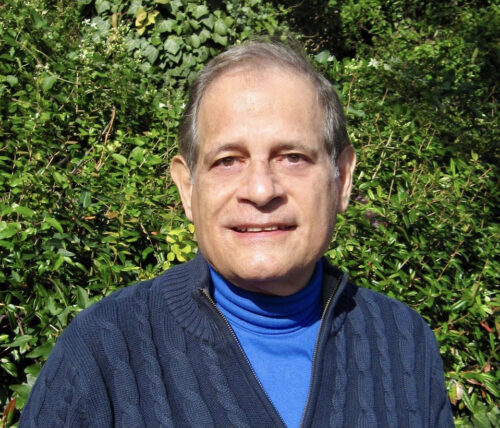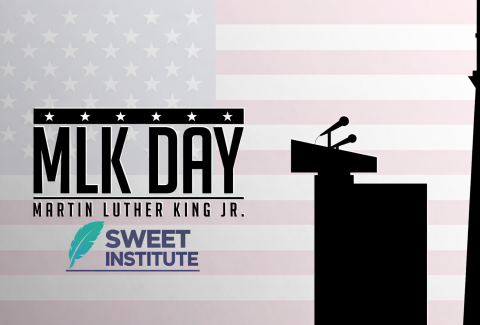Steven Herbst’s Journey: From Advertising to Psychotherapy
My name is Steven Herbst, and I am an LMSW (Licensed Master Social Worker) and a CASAC-2. My path to becoming a psychotherapist was unconventional but deeply rewarding, shaped by both personal experiences and the influence of my family, who have long been involved in mental health professions.
One night, I received an email from a friend in California requesting I call him. It was midnight my time, but 9pm for him. I stayed on the phone with him, letting him talk for an hour. He was feeling lonely and upset after a wonderful weekend with his boyfriend in Las Vegas who had to go home. By the end of the conversation, I asked him how he felt? And he said, “much better!” I then jokingly said, “perhaps I should become a psychotherapist?” He replied, “yes, and you’d be good at it!” I had always been surrounded by professionals in the field: my sister and her husband are psychotherapists, my brother is married to a psychiatrist, and my stepmother was a clinical psychologist who ran a clinic for gifted children at NYU.
So I reached out to a psychotherapist who knew me rather well to ask what she thought about my becoming a psychotherapist. She heartily endorsed this notion. I then asked her, “how does one become a psychotherapist?” The answer was clear: “MSW.” I asked her where I might go for an MSW? She recommended Fordham University’s Graduate School of Social Service. So I applied there. My journey began as an intern at a 28-day rehab program on Wards Island, a facility run by New York State OASAS. I didn’t choose this placement; I was simply assigned there because of convenience and transportation. However, this was where I first learned about the realities of working in substance abuse treatment.
Early Challenges and Specializations:
My 3 internships in substance use treatment (the 28-Day Rehab, Outpatient, and Long-Term residential settings) gave me an in-depth look at addiction and recovery. Over time, I developed a specialization in treating clients who were primarily mandated by the justice system, serving as an alternative to incarceration. Working with such populations required resilience and creativity. I was even put in charge of groups and created PowerPoint presentations to encourage smoking cessation. After attending for two years’ full-time, I graduated with a 3.94/4.0!
My first major full-time role was in Brownsville, Brooklyn—a notoriously tough neighborhood. There, I was the first social worker or mental health professional they had ever hired. The staff was primarily made up of individuals who had been formerly incarcerated – and the program had actually been founded in a prison! It was challenging; and I had to prove my worth. One of my initial recommendations was to end smoke breaks. I believed that allowing smoking sent the wrong message to individuals trying to overcome substance use, as studies show that smoking increases the likelihood of relapse by 60-80%.
Tobacco and Nicotine Awareness: A Personal Crusade:
As suggested above, one of my passions in the field of addiction treatment is addressing tobacco and nicotine use. In my early internships, I took it upon myself to develop programs for clients, including creating PowerPoint presentations — knowing that smoking cessation is often a neglected aspect of recovery. I realized that telling people they needed to quit smoking would often provoke resistance; so I reframed the conversation, offering educational presentations about the deleterious effects of tobacco and nicotine on recovery. I emphasized that continuing to smoke could dramatically increase their chances of relapsing on more dangerous substances. This approach not only helped clients quit smoking but also reinforced their overall commitment to sobriety. Having taken seminars on this, I advocated for what I called “Tobacco/Nicotine Awareness” as opposed to “Smoking Cessation” to foster the willingness to consider the pros and cons as opposed to a mandate.
From there, I moved on to other organizations, including Odyssey House in Harlem, where I continued to design and implement programs to help people recover from substance use. I became known for my ability to bring in unique resources, including entertainment and education, to engage clients more deeply in their recovery.
Remote Therapy and Evolving Methods:
Over the past four and a half years, like many in the field, I transitioned to telehealth due to the pandemic. Initially, this was a challenging adjustment; but it has now become an efficient and beneficial way to engage with clients. They no longer have to worry about travel or related expense; and it seems to fit better into their lives. My approach to therapy has always been eclectic, combining Cognitive Behavioral Therapy (CBT) with psychoanalytic theory. I believe it’s important not only to help clients modify their behavior but also to help them understand how and why they became the people they are today. While insurance companies may prefer the efficiency of CBT, psychoanalytic theory provides depth and insight, allowing for a more comprehensive healing process.
I’ve also explored other therapeutic modalities, such as Dialectical Behavioral Therapy (DBT) and Eye Movement Desensitization and Reprocessing (EMDR) — constantly striving to expand my skill set to meet the evolving needs of my clients.
Professional Struggles and Licensure Challenges:
Despite my passion and success in the field, I have faced significant challenges, particularly around licensure. After passing the LMSW exam with 27 points above the passing score without studying, I underestimated the difficulty of the Licensed Clinical Social Worker (LCSW) exam. I failed by two points on my first attempt, which discouraged me from trying again immediately. Over the years, I took the exam four more times, even hiring a tutor, but continued to fall short by a handful of points. The exam seems disconnected from real-world experience and more focused on academic knowledge, much of which fades after so many years of practical work.
The difficulty in obtaining the LCSW license has been particularly frustrating because many positions now require it, not because it reflects one’s ability to treat clients, but to satisfy insurance requirements. If I had prepared and taken the exam again immediately after my initial failure, I might have had better success.
Reflections on the SWEET Institute:
What I love about the SWEET Institute is how it integrates both traditional and non-traditional methods. It really resonates with my style of combining CBT with psychoanalytic theory. This innovative approach helps my clients understand how they became who they are, and it’s something I deeply appreciate. SWEET Institute’s emphasis on empowerment aligns with my philosophy of helping individuals take control of their own healing journey. It complements the work I do in substance abuse treatment and general psychotherapy in a powerful way. I also appreciate how the SWEET Institute fosters a sense of community among mental health professionals. The collaborative environment keeps me engaged and updated on new methodologies like DBT and EMDR, which is incredibly enriching.
Conclusion:
In my 14 years as a psychotherapist, I have seen the field evolve and have adapted with it, constantly refining my approach and expanding my knowledge. My unique journey—from a successful 34-year career as a Senior Vice-President in an advertising agency to becoming a psychotherapist and a substance abuse specialist—has taught me the value of resilience, creativity, and compassion. Despite the hurdles I’ve faced, particularly in licensure, I remain dedicated to helping people heal, grow, and transform their lives – with no intention of ever retiring as long as I can do so! My story is a testament to the power of persistence and the importance of staying open to new opportunities, no matter where life takes you.
Steve Herbst holds a B.A. from the University of Pennsylvania and earned his MSW with honors (3.94 GPA) from Fordham University Graduate School of Social Service. With over 14 years of experience in psychotherapy, Steve has worked extensively in substance use treatment across diverse settings, including intensive, long-term residential programs, outpatient care, 28-day rehabilitation centers, and nursing and physical rehabilitation facilities. He also has 4.5 years of experience providing telehealth therapy through platforms such as Zoom, Doxy.me, and Simple Practice. Steve’s clientele has spanned various backgrounds, including individuals of different races, ethnicities, and LGBTQ identities, as well as clients ranging from late teens to older adults, including couples. He is also experienced in working with clients mandated to treatment by the criminal justice system and social service agencies.
Steve utilizes evidence-based approaches, including Cognitive Behavioral Therapy (CBT), Motivational Interviewing (MI), and Psychoanalytical techniques, aiming to help clients gain insight into their behaviors and resolve long-standing challenges. He is an active member of the Addictions Committee of the New York City Chapter of the National Association of Social Workers. Additionally, Steve has expertise in tobacco and nicotine cessation for individuals seeking or open to quitting.







